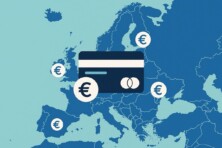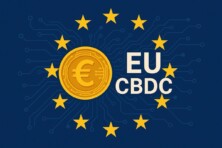The American technology giant Meta launched the Threads social network in the European Union on Thursday, December 14.

Mark Zuckerberg’s company announced the rollout of its new virtual platform, which debuted in July current year, in the EU this week. A countdown timer was been set on the official website of the social network for European users.
Threads is positioned by the tech giant as a kind of subsidiary platform of such large apps as Facebook and Instagram. Meta also, during the summer presentation of the social network, very insistently focused on the fact that this digital product is a competitor to X, formerly known as Twitter.
Mark Zuckerberg said in July that one of his goals is for Threads’ user base to reach 1 billion people. In the summer of this year, the number of accounts registered in X was 300 million. Mr. Zuckerberg said that the social network owned by Elon Musk could have formed a user base of 1 billion people, but missed this chance.
During the first five days after the launch of Threads, 100 million accounts were registered on this virtual platform. This is an impressive result, which has reason to be described as a record. Mark Zuckerberg called the rapid growth of the user base organic.
Threads provides the ability to publish text materials with a length of no more than 500 characters and links. Also, functional solutions integrated into the virtual platform allow users to post photos and videos lasting no more than 5 minutes.
In the summer, X accused Meta of illegally using trade secrets when creating Threads. This claim is that the technology giant, headed by Mark Zuckerberg, allegedly gained the development of a new social network of former employees of the virtual platform owned by Elon Musk, and instructed them to copy achievements from their former place of work.
The debut of Threads, which was accompanied by a large-scale marketing campaign, reinforced by ambitious statements about the goals of this app, followed the path of success and growth in the first days after the launch. But the sunlit fields of the first days of life, even before the end of summer, were replaced by the cloudy prose of a complex mountain system of reality, where the definition of fantastic has a strictly conditional meaning.
Consumer activity in Threads began to decline rapidly in August. In part, there is an element of what can be described as a natural tendency in this process. The new product, which debuted to the sounds of deafening marketing and is part of the ecosystem of the largest technology giant, aroused interest by the very fact of its appearance without taking into account the expediency factor in the case of each user. In this case, it turned out that people were interested in touching something new, but not interested in continuing to interact with it. At the same time, consumers rarely reject a product that has a high level of quality and compares favorably with competitors.
Mark Zuckerberg described the decline in user activity on the new social network as a pattern. Many experts questioned this calm tone with signs of a philosophical attitude towards failures, suspecting the head of Meta that he tried to convince the public that everything was fine against the background of a completely different reality. By mid-August, Similarweb found that the number of daily active Threads users on Android mobile devices had dropped from 49 million to 11 million people. This is an excessive decrease impossible to be called a pattern that exists within a favorable situation.
In October, the number of active users of the virtual platform increased to 100 million people. This was announced by Mark Zuckerberg. This is an improvement in the situation compared to the summer drop in the indicator. But in this case, it can be stated that the social network in terms of user engagement could not surpass the result achieved shortly after the debut. This means a lack of development in terms of audience growth, which decreased, then returned to the previous level, but could not conquer new heights.
X also helped Threads in this case, in a sense, whose users, due to the disappointing and contradictory management decisions of Elon Musk, are interested in alternative offers in the sphere of social networks. Against this background, the new virtual platform, which is part of the Meta digital ecosystem, declares its friendliness in every possible way.
X found itself in a difficult situation due to accusations that narratives of ideological systems based on the concept of hatred are promoted on this social network and marginal world-outlook semantic constructions are propaganded. Against this background, many advertisers have already refused to cooperate with Elon Musk’s social network.
Users of the new virtual platform from Meta are calling on the management of the virtual platform to improve the news and community search system.
In the EU, many consumers were waiting for Threads to appear. Perhaps the launch of a virtual platform in this region will significantly improve the size of the user base. At the same time, do not forget that the preferences of American and European users in the sphere of social networks largely coincide. This means that there is a high probability that the consumer reaction to Threads in the EU will be similar to the perception of this virtual platform by the audience in the United States. It is obvious that the number of accounts on the social network will increase after its launch in Europe, but the main question is how much will increase the volume of this indicator and what share of the local market of such digital products will receive the brainchild of Meta.
After the debut, Threads introduced updated and new solutions, including a web version of the virtual platform, a following feed, and tags. Adam Mosseri, the head of Instagram, said that next year it plans to expand the fact-checking mechanisms on this social network.









